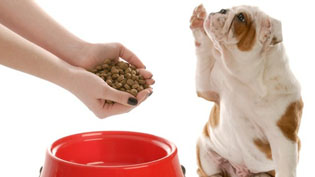The onset of Phoenix’s scorching summer temperatures may also bring necessary changes for your pet’s food intake and exercise regimen. Your pet may have to exercise a little less because of the hot temperatures, which may mean a decrease in overall food intake.
Here are some basic tips from Fetch! Pet Care to make sure your pet isn’t tipping the scale during the hot summer months:
- Be consistent: Set exercise goals for your pet that are manageable for your schedule but that establish a consistent routine. A moderate level of exercise each and every day is key for fostering a healthy and fit pet. For example, a 20-minute walk in the early morning or an hour after sunset is more beneficial for your pet’s health than an hour-long walk twice a week. For both dogs and cats, keep a set of toys and laser pointer handy for an energized and sustained play session, either indoors or out, at least once daily.
- Boost blood flow: While a leisurely stroll with your dog is better than no exercise at all, a fast-paced walk will elevate the dog’s heart rate, improve its cardiovascular function and turn calories into fuel rather than fat. A multi-story cat climber or “tree” with strategically placed low-cal treats or play toys can readily get kitty jumping from level to level and its heart pumping in kind.
- Log on and learn: As with humans, Body Mass Index (BMI) can be a reliable indicator of an animal’s body fat levels and serves as a free and easy way to screen your pet for weight concerns that may lead to health problems. One need only log on to the Internet to find freely accessible dog and cat BMI Calculators as well as Feline Calorie Counters to determine how many calories your cat needs to help manage or avoid an obese condition.
- Measure the meals: Even for animals, dieting and weight maintenance is all about portion control. Feed your pet using a designated measuring cup so that you know exactly how much food they’re consuming each day. If you still aren’t getting the desired results, call the pet food company for dietary recommendations to ensure you aren’t over-feeding—especially as dietary requirements change as a pet ages and becomes less active.
- Skip the scraps: Your pet is likely smaller than you. So while a small scrap of table food might seem insignificant, it can be a huge portion for your pet. Instead of giving your pet random table scraps, try offering it raw veggies such as baby carrots.
Editor’s note: The above should not be construed as medical or veterinary advice. Individuals should consult with their pet’s own physician regarding any fitness, exercise and/or nutrition regime.










































